Lessons from South Africa: 20+ years of nature-inclusive farming
Nature-inclusive farming is not about making a quick buck, but a long-term investment. Also, it is a process of trial and error, and farmers must find what works for them. We talk in depth with two farmers in South Africa to understand their approaches to nature-inclusive agriculture. As organic and nature-inclusive methods of farming become the norm, farmers around the world can take a leaf from their book.
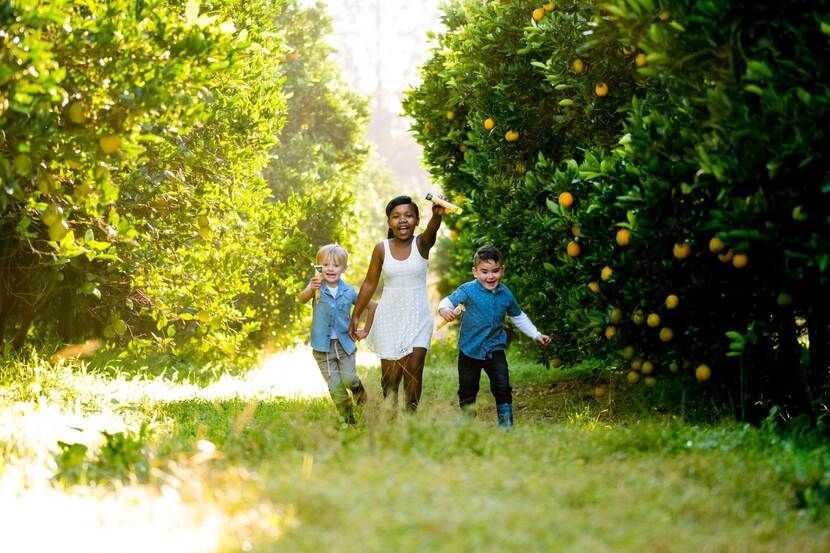
Tomato and avocado farming enterprise ZZ2 takes a more practical approach, says systems ecologist Wiam Haddad, reducing its dependence on traditional fertilisers by combining them with compost. Organic citrus farmer Paul Marais is more rigorous, forgoing chemicals for natural alternatives.
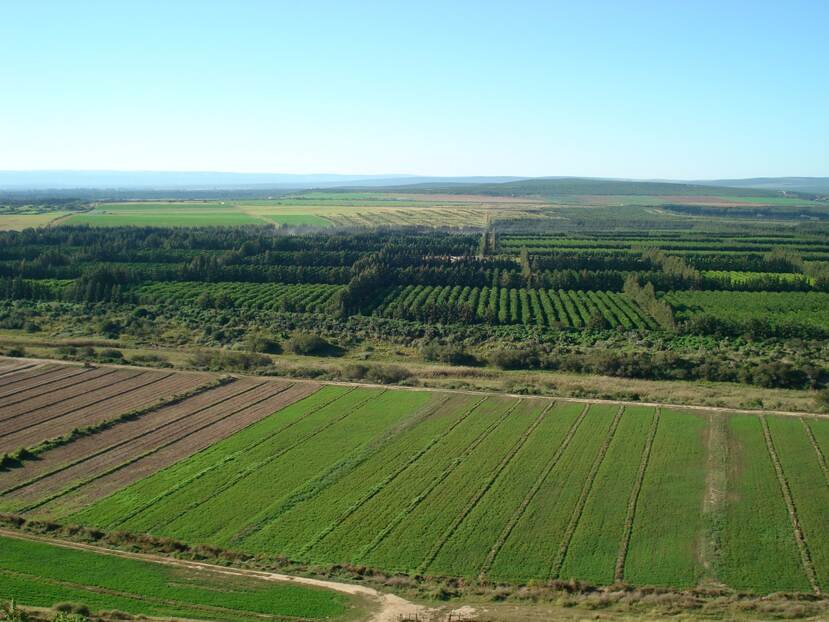
ZZ2: balancing traditional- and nature-inclusive practices
ZZ2 is mainly located in Limpopo province and has developed its own philosophy of nature-inclusive agriculture: Natuurboerdery – farming with awareness and sensitivity… to the environment. While they farm closer to nature, they do not completely abandon traditional farming methods. This philosophy is best demonstrated in their approach to disease management. ZZ2 firmly believes that healthy soil and plants are more resilient, and that they are healthier without chemicals. This approach focuses on preventing disease rather than reacting and applying chemical pesticides.
To support soil health, ZZ2 employs specialised composting and mulching, as well as precision irrigation which prevents root disease. The farm also uses probiotic products that act as ‘multivitamins’ to promote plant health. When it comes to treating pests and disease, regular scouting is conducted. If threats are detected the farm will deploy natural, garlic- or neem-based products, opting for chemicals only as a last resort. ZZ2 are also experimenting with breading new more resistant species. Furthermore, through the preservation of nature conservation areas around the farms, ZZ2 are somewhat buffered from pest outbreaks on neighbouring farms.
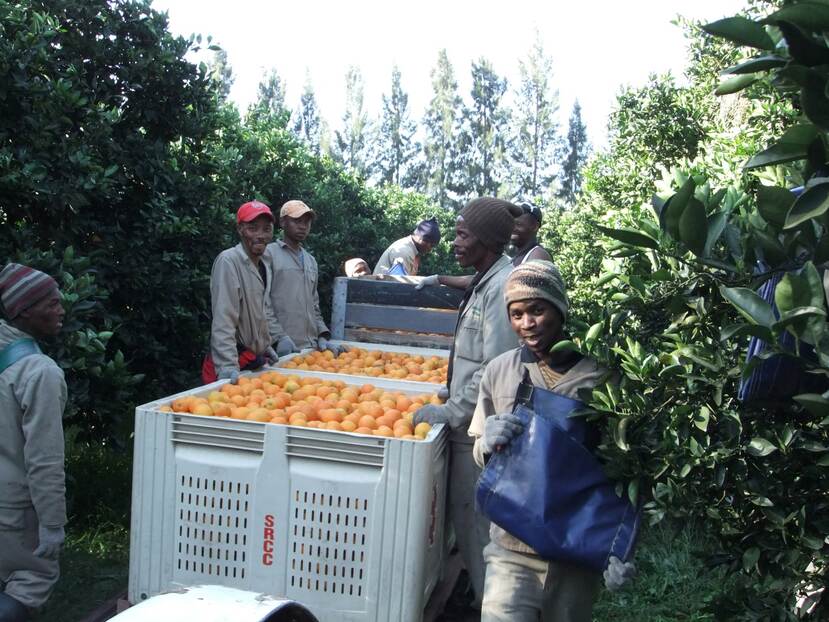
‘Organic farming provides more jobs than conventional methods’
Nature conservation areas
ZZ2 is surrounded by mountainous nature reserves that act as biological support areas for the farms. Roughly 70% of the area in which ZZ2 operates is still natural land, the remaining land is used for agriculture. These reserves play an important role, boosting biological diversity and plant life, preventing soil erosion, and capturing and filtering underground water.
These areas are designated nature conservation areas that are protected under the government’s Biodiversity Stewardship Mechanism, says Wiam Haddad. This mechanism was established to encourage private organisations to allocate a portion of their land for nature conservation so that the country can meet its conservation targets as laid out in the Convention on Biological Biodiversity.
Farmers with large availability of land, already engaging in nature conservation efforts, are ideal candidates for this scheme. This status protects conservation land from activities such as mining, which would have devastating consequences for agriculture in the area. ZZ2 actively makes use of this mechanism. However, Haddad cautions that it is not enough to have nature conservation status. They need to actively manage the areas with anti-poaching rangers, as well as regular monitoring and removing alien species.
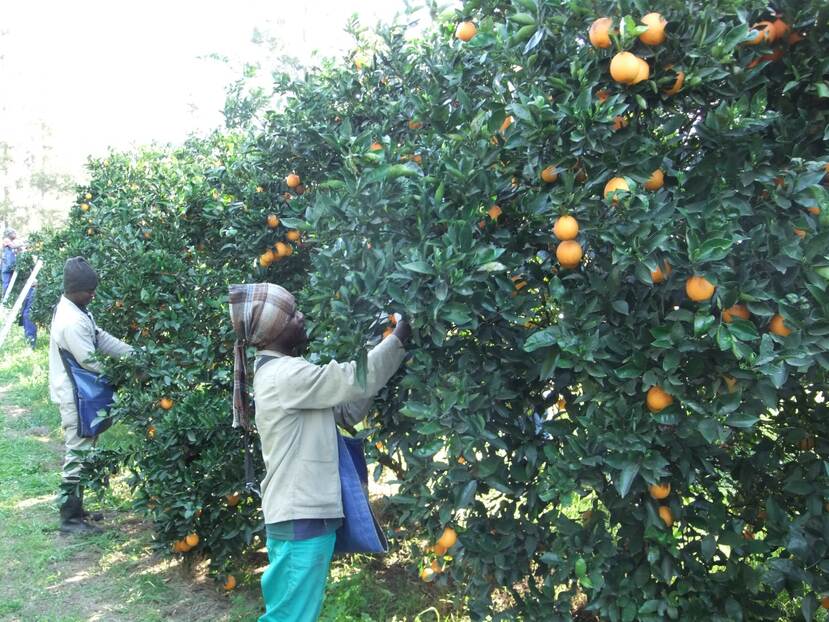
Composting
When it comes to balancing the natural and traditional approaches to soil nutrition, compost plays an important role. ZZ2 manufactures its own compost to ensure quality. The bulk is made from woodchips of neighbouring forestry plantations, farm waste, garden waste, as well as some waste from the fresh produce market. Chicken and cattle manure makes up the nitrogen component and Haddad claims this is a circular process, nothing on their farm goes to waste.
When asked about ZZ2’s use of fertilisers, Haddad explains that ZZ2 has reduced its dependence on traditional fertilisers by using them in combination with compost. This middle-ground approach may be an ideal starting point for farmers weary of abandoning fertilisers, but who understand the negative impact on the soil. Over and above the great ecological benefits of this approach, ZZ2 has found that reduced dependence on chemical fertiliser has cushioned them from the rising costs over the past year, which has driven them to increase their compost component by an additional 30%.
With this adjusted combination they have been able to maintain their yields. This proves that their initial estimates were conservative and they could reduce their dependence on fertilisers even further. However, nature-inclusive farming is a process of trial and error, and farmers must find what works for them.
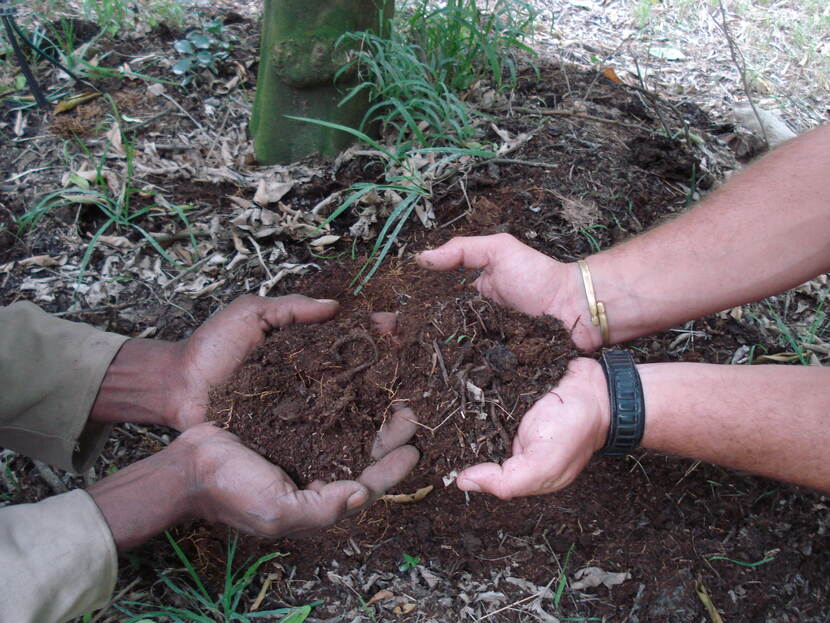
Organic citrus: going all out with nature!
In the Sundays River Valley you can find the handful of South African organic citrus growers. Here, Paul Marais began his nature-inclusive citrus journey in 2002. On Marais’ three farms, he composts in a circular way with the bulk of the compost material coming from wood chippings of alien Casuarina trees in the area. Removing alien trees has the added benefit of reducing ground water consumption. The nitrogen component comes from the manure from his cattle which graze on organic pastures and are fed left over orange peels from the juicing plant.
The composting and creation of healthy soil has spurred growth of ‘wild’ cover crops which bloom under the shade of citrus trees. This diverse plant life has contributed to improved biodiversity by creating habitats for insects, microorganisms and earth worms that actively improve soil quality and water retention. Marais claims that the ecosystem and the abundance of earth worms release about 100kg of natural nitrogen into the soil per hectare each year.
Natural predators
Furthermore, the biodiversity in the orchards has created a breeding ground for natural predators of False Coddling Moth (FCM). These predators eat the pupa laid in the soil, resulting in significant decline of FCM population. Since Marais started exporting to the EU in 2006, not a single shipment has been intercepted with FCM.
He argues that black spot is also effectively managed by nature. Black spot is a fungus that grows on leaves which then fall to the ground and release the spores that affect the fruit. However, the natural ecosystem and predators found in the soil quickly decompose these leaves before the spores can disperse, thereby preventing an outbreak. Marais has found that nature tends to ‘sort itself out’ and that the natural pests and predators manage themselves thereby reducing outbreaks and damage to the crops. Nonetheless, there is regular scouting in the orchards to monitor pests and natural pesticide neem oil is used as a last resort. These inputs are carefully monitored by Control Union.
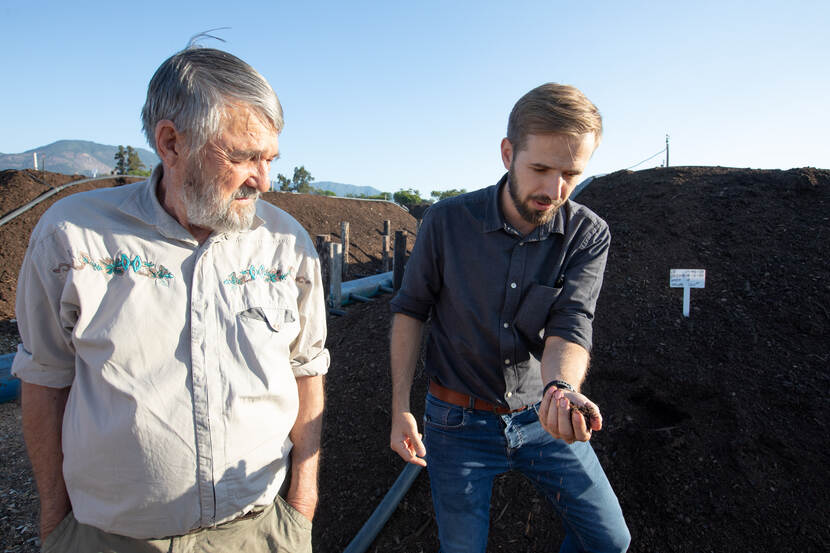
Working smart
Marais acknowledges that organic farming does not yield the same quantities as conventional farming. But farmers must be smart about it, he says. Up to 45% of citrus produced on Marais’ farms does not meet conventional class one and two export standards. Instead of discarding these batches, they are used to manufacture organic orange and lemon juice for local and export markets.
Marais also claims that while conventional farms need to replace their crops after 20-25 years, he has visited organic citrus farms with trees over 100 years old, yielding good harvests. Thus, in the 4-5 years that farmers are waiting for a new crop to become commercially ready, Marais can continue harvesting, leaving him with a 20-year lead over his counterparts in a 100-year period.
He also advises that farming closer to nature is not about making a quick buck, but a long-term investment, albeit an expensive one, that will safeguard the planet for our young farmers. Organic farming is also more socio-economically sustainably, providing more jobs than conventional farming, with up to four times more employment due to its labour-intensive nature.

Conclusion
While the switch to nature-inclusive agriculture may seem daunting, ZZ2 proves that this can be a gradual process and that farmers don’t have to relinquish everything they know. On the other hand, Marais shows that there are numerous benefits to making the switch, despite the challenges. As organic and nature-inclusive methods of farming become the norm, farmers around the world can take a leaf from the books of these inspiring South African farmers.
Contact
Would you like to know more about the current developments in the domain of agriculture and nature in South Africa or contact the agricultural team at the Netherlands Embassy in South Africa?
You can visit the country page of South Africa at the website agroberichtenlandbuitenland.nl of the Netherlands ministry of Agriculture, Nature and Food Quality. You can also send an email to PRE-lnv@minbuza.nl
This article is part of the latest edition of e-magazine Agrospecial (June 2023) about nature-inclusive farming. The teams of our Netherlands Agricultural Network showcase nature-inclusive practices and initiatives in 36 countries worldwide. They delve into the development, benefits and challenges of this innovative farming approach. Each team has a different story to tell. Click here to read more about insights into the potential of nature-inclusive farming practices worldwide!